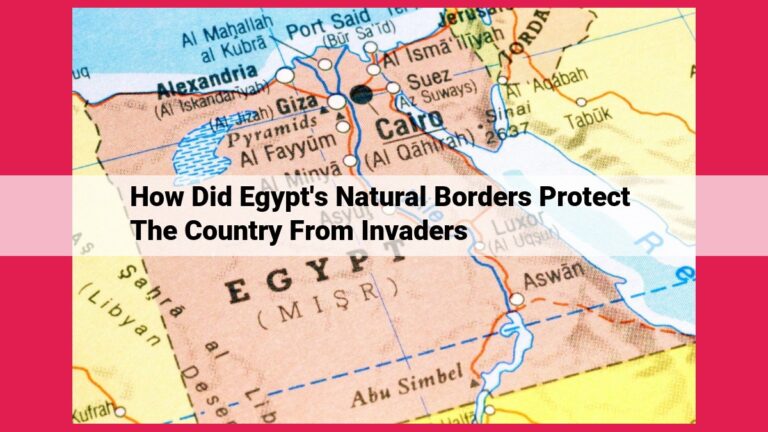Ethiopia’s Unwavering Resilience Against Imperialism: A Comprehensive Analysis
Ethiopia’s resistance to imperialism involved diplomatic neutrality, military resistance, economic independence, cultural preservation, international alliances, and geographic advantages. Its diplomatic maneuvers played powers against each other, while armed resistance and military victories, such as Adwa, deterred invasions. Economic policies fostered independence, cultural resistance preserved identity, and foreign allies bolstered Ethiopia’s stance. Finally, its mountainous terrain and strategic location provided natural defenses.
Diplomatic Masterstrokes: Ethiopia’s Neutral Stance
- How Ethiopia played different powers against each other to maintain neutrality
- Examples of treaties with Britain and Russia
Ethiopia’s Diplomatic Masterstrokes: Maintaining Neutrality in a Colonial Era
Throughout the tumultuous colonial era, Ethiopia stood as a beacon of independence, defying the encroachment of European powers. At the helm of this remarkable resistance was a masterful diplomatic strategy that played different powers against each other, securing Ethiopia’s neutrality.
Ethiopia’s neutrality was no mere accident. It was a carefully crafted diplomatic dance, executed with finesse by Emperor Menelik II. By signing treaties with both Britain and Russia, Menelik shrewdly balanced their competing interests, keeping them at bay. The treaty with Britain, signed in 1897, recognized Ethiopia’s borders and granted it access to modern weapons, while the treaty with Russia, signed in 1889, provided diplomatic support and acted as a deterrent against British aggression.
Menelik’s diplomatic maneuvering was not limited to these two superpowers. He also sought alliances with other European powers, such as Italy, Germany, and France. By playing these powers against each other, Menelik created a buffer around Ethiopia, preventing any single power from gaining dominance. This diplomatic brilliance kept Ethiopia free from the colonial yoke that enveloped so many of its African neighbors.
Defying Colonial Forces: Ethiopia’s Armed Resistance
In the face of encroaching colonial powers, Ethiopia stood as a beacon of resistance, utilizing its mountainous terrain and a fierce military to protect its sovereignty.
Mountainous Strongholds
_Ethiopia’s rugged landscape, with its towering mountains and treacherous terrain, proved an invaluable asset in its defense. The country’s military took to the hills, using natural fortresses and guerilla tactics to outmaneuver and harass invading forces. The mountains became their sanctuary, allowing them to retreat, regroup, and launch surprise attacks on the unsuspecting colonizers.
The Battle of Adwa: A Turning Point
The Battle of Adwa (1896) stands as a testament to Ethiopia’s unwavering resolve. Facing a technologically superior Italian army, Ethiopian forces under Emperor Menelik II unleashed a devastating assault, inflicting a humiliating defeat on the invaders. This victory not only shocked European powers but also shattered the myth of African inferiority. Adwa became a symbol of African resistance and a testament to the determination of a nation to remain independent.
Impact of the Battle
The Battle of Adwa had far-reaching consequences. It _forced Western powers to recognize Ethiopia’s sovereignty, ending their hopes of colonization. The victory also boosted Ethiopia’s prestige and inspired other African nations to resist European encroachment. Ethiopia became a model for African independence and a source of hope for those seeking to break free from colonial rule.
Economic Independence: Breaking the Chains of Colonialism
Ethiopia’s unwavering determination to remain free from colonial rule extended beyond diplomacy and armed resistance. It also manifested in the realm of economics, where the country sought to sever the chains of colonialism that sought to exploit its resources.
Recognizing the importance of self-reliance, Ethiopia adopted policies of import substitution and industrialization. These measures aimed to reduce dependence on imported goods by establishing local industries that would produce the necessary commodities within the country.
Through these policies, Ethiopia aimed to control its economy, rather than allowing foreign powers to dictate its trade and production. By manufacturing its products domestically, Ethiopia reduced the flow of wealth out of the country and fostered economic growth and prosperity.
Additionally, Ethiopia established local industries to meet the needs of its population. This not only reduced the reliance on imports but also created jobs and stimulated the local economy. By investing in its own industries, Ethiopia empowered its citizens and laid the foundation for future economic development.
Ethiopia’s quest for economic independence was not merely a matter of financial self-sufficiency. It was a symbolic and powerful act of defiance against colonialism. By breaking the chains of economic dependency, Ethiopia sent a clear message that it would not be subjugated or exploited.
The country’s policies of import substitution and industrialization, coupled with its establishment of local industries, served as a catalyst for economic growth and national pride. Ethiopia stood as a beacon of hope for other African nations, demonstrating that it was possible to resist colonial rule and forge a path of economic independence.
Ethiopia’s Cultural Bastion: Preserving Identity Amidst Colonial Pressures
Ethiopia, a nation of ancient heritage and unwavering resilience, managed to maintain its independence throughout the colonial era, a remarkable feat that can be attributed to its formidable diplomatic skills, armed resistance, and steadfast cultural bastion.
Resistance to Assimilation and Westernization
Ethiopia’s cultural identity remained intact despite the waves of colonialism that swept across Africa. The nation’s people fiercely resisted attempts at assimilation and Westernization, determined to preserve their unique traditions, language, and customs. Unlike many other African nations, Ethiopia was never colonized, allowing its people to retain their cultural autonomy.
The Role of the Ethiopian Orthodox Church
The Ethiopian Orthodox Church played a pivotal role in safeguarding the nation’s cultural heritage. It served as a repository of ancient knowledge, literature, and rituals. The church’s unwavering adherence to its traditions and its deep roots in Ethiopian society acted as a powerful bulwark against foreign influences.
Cultural Preservation through Education
Ethiopia’s resistance to assimilation also manifested in its educational system. The nation established schools and universities that emphasized the teaching of Ethiopian history, literature, and culture. This educational focus instilled a deep sense of national pride and identity in generations of Ethiopians, ensuring the continuity of their unique cultural heritage.
Ethiopia’s Quest for International Allies: Diplomacy and Recognition
In the face of mounting colonial pressures, Ethiopia recognized the importance of seeking external support to safeguard its independence. Through a strategic campaign of diplomacy, the African nation forged alliances with powerful European powers, notably Russia.
These alliances were not merely superficial gestures. Ethiopia’s astute diplomats leveraged them to gain recognition and diplomatic support. By astutely navigating the complex web of international politics, they secured the backing of nations that could counterbalance the aggressive ambitions of colonial powers. With each diplomatic triumph, Ethiopia’s resistance to colonization gained momentum.
The diplomatic overtures were not confined to Europe alone. Recognizing the significance of global alliances, Ethiopia established connections with other non-colonial powers, including Japan. By forging these strategic partnerships, Ethiopia effectively created a network of support that helped thwart the colonial agenda.
Moreover, Ethiopia’s diplomacy extended beyond mere alliances. It employed skillful negotiation tactics to secure favorable agreements with foreign powers. These agreements not only enhanced Ethiopia’s international standing but also provided access to crucial resources and support.
In an era marked by colonial dominance, Ethiopia’s pursuit of international allies stands as a testament to its determination to preserve its sovereignty. Through astute diplomacy and strategic partnerships, the nation created a shield that protected its independence and paved the way for its eventual triumph over colonial ambitions.
Ethiopia’s Geographic Advantage: A Bastion of Resistance
Amidst the Scramble for Africa, the Ethiopian Empire stood as an anomaly, defying the relentless march of European powers. Its unique geographic advantage played a pivotal role in maintaining its independence, transforming its rugged landscapes and strategic location into a formidable defense system.
Ethiopia’s mountainous terrain proved to be an impenetrable barrier for invading forces. The steep slopes, deep ravines, and treacherous mountain passes made it extremely difficult for European armies to penetrate the country’s interior. The rugged terrain also provided excellent defensive positions for Ethiopian warriors, who could harass and ambush their enemies from hidden strongholds.
Furthermore, Ethiopia’s strategic location gave it control over vital trade routes and territories**. The country’s access to the Red Sea and the Nile River allowed it to control both maritime and overland trade, providing it with economic leverage and diplomatic advantage. By controlling these key arteries, Ethiopia could limit the influence of foreign powers and prevent them from gaining a foothold in the region.
The Battle of Adwa in 1896 stands as a testament to Ethiopia’s geographic advantage. Led by Emperor Menelik II, the Ethiopian army decisively defeated the heavily armed Italian forces, thanks in large part to the mountainous terrain. The victory at Adwa sent shockwaves through Europe, shattering the myth of European military superiority and inspiring resistance movements across the continent.
In conclusion, Ethiopia’s geographic advantage played a crucial role in its successful resistance against colonial powers. Its rugged terrain and strategic location allowed it to withstand repeated invasions, maintain its independence, and preserve its unique cultural identity. The country’s mountains, valleys, and trade routes became symbols of resilience and self-determination, making Ethiopia a beacon of resistance in the face of imperial encroachment.





